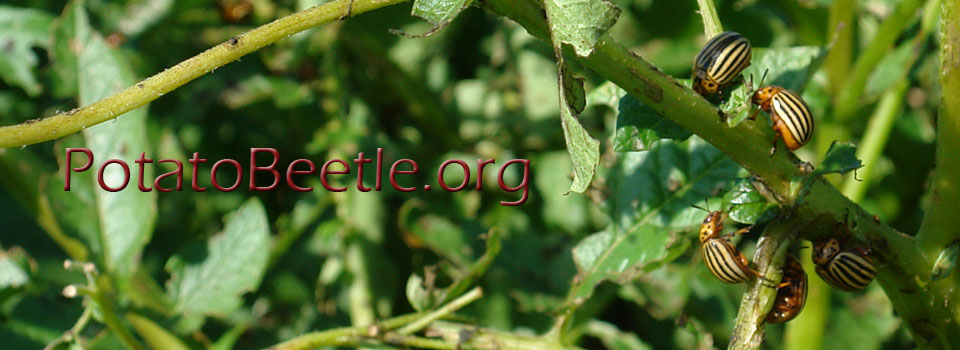Hermann SL, Thaler JS. Oecologia. 2018;188(4):945-952. doi: 10.1007/s00442-018-4202-7.
Predator-prey interactions primarily focus on prey life-stages that are consumed. However, animals in less vulnerable life-stages might also be influenced by the presence of a predator, making our understanding of predation-related impacts across all life-stages of prey essential. It has been previously demonstrated that Podisus maculiventris is a voracious predator of eggs and larvae of Leptinotarsa decemlineata, and that larvae will alter their behavior to avoid predation. However, the adult beetles are not readily consumed by P. maculiventris, raising the question of whether they will respond to predators to protect themselves or their offspring. Here, we examine the effect of predation risk by P. maculiventris, on three adult behaviors of L. decemlineata; colonization, oviposition, and feeding, and the resulting impact on host plant damage. In an open-field test, there was no difference in natural beetle colonization between plots with predation risk and control treatments. However, subsequent host plant damage by adult beetles was 63.9% less in predation risk treatments. Over the lifetime of adult beetles in field mesocosms, per capita feeding was 23% less in the predation risk treatment. Beetle oviposition was 37% less in the presence of predators in a short-term, greenhouse assay, and marginally reduced in longer term field mesocosms. Our results indicate that predation risk can drive relatively invulnerable adult herbivores to adjust behaviors that affect themselves (feeding) and their offspring (oviposition). Thus, the full impact of predator presence must be considered across the prey life cycle.
